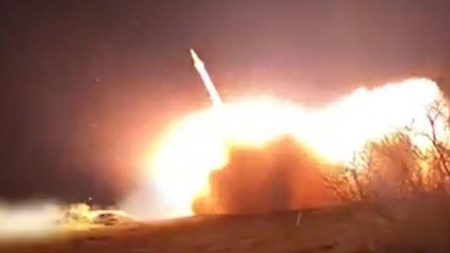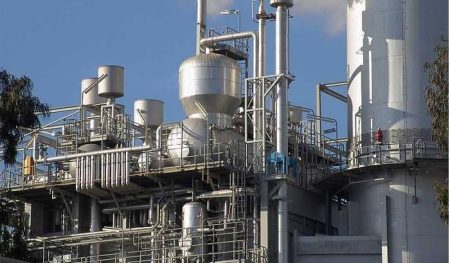 08 November 2015, Sweetcrude, Lagos – In 1999, the Federal Military Government rolled out the Deep Offshore and Inland Basin Production Sharing Contracts Decree No. 9. It was amended by Decree No. 26 of 1999. The Law empowered the NNPC to enter into Production Sharing Contracts, PSCs, with oil producing companies. The features of the PSCs are that the contractor bears all cost of exploration and production without such costs being reimbursable where there are no finds of a commercial quantity in the acreage investigated. Where there are finds, cost becomes recoverable with crude oil with provisions made for: Tax Oil which deals with Petroleum Profit Tax, Royalties, operational licenses, etc; Cost Oil which is the oil taken out by the Contractor to cover capital investment and operational cost and, Profit Oil which is the balance after deducting Tax Oil and Cost Oil. This Profit Oil is what gets shared between the NNPC and the Contractors in predetermined proportions.
08 November 2015, Sweetcrude, Lagos – In 1999, the Federal Military Government rolled out the Deep Offshore and Inland Basin Production Sharing Contracts Decree No. 9. It was amended by Decree No. 26 of 1999. The Law empowered the NNPC to enter into Production Sharing Contracts, PSCs, with oil producing companies. The features of the PSCs are that the contractor bears all cost of exploration and production without such costs being reimbursable where there are no finds of a commercial quantity in the acreage investigated. Where there are finds, cost becomes recoverable with crude oil with provisions made for: Tax Oil which deals with Petroleum Profit Tax, Royalties, operational licenses, etc; Cost Oil which is the oil taken out by the Contractor to cover capital investment and operational cost and, Profit Oil which is the balance after deducting Tax Oil and Cost Oil. This Profit Oil is what gets shared between the NNPC and the Contractors in predetermined proportions.
Without any doubts Nigeria needed the PSCs to develop oil fields such as Erha, $3.5Billion, Agbami, $3.5 Billion, Bonga, $3.6 Billion and Egina, $3.1 Billion, among many others. Again, the 1999 Production Sharing Contracts Act was cloned from the Persian Gulf where it worked for the oil producing countries of that belt. In Nigeria, however, only the Oil Companies and NNPC officials profit from PSCs as the actual cost involved in developing the project is never ascertainable as volumes upon volumes of expense sheets are added by the oil companies in connivance with corrupt officials of the NNPC. Apart from the matter of costs, the volume of crude taken out as tax oil, cost oil and profit oil, is never measured in values of equivalence but in the deep gorges of greed, compromise and corruption. According to a Shell operative who worked on the Bonga project from inception, the Shell Petroleum Development Company of Nigeria, contractor for Bonga as Chevron was for Agbami, Exxon Mobil for Erha and TotalFinaElf is for Egina, recovered its investment in Bonga, nine months after selling Nigeria’s crude at an average $100 per barrel. However, nine years after Nigeria is still bleeding for Shell and greedy self serving elements at the NAPIMS-NNPC from the Bonga sore. How much is Nigeria losing to Chevron on the Agbami project or to Exxon Mobil from Erha?
Who takes stock of the performance of these PSCs? Are they working for Nigeria or for some unconscionable public officials? Nigeria’s oil and gas business in general requires an overhaul. For more than eight years, Nigerians and the oil and gas industry worldwide has awaited the enactment of the Petroleum Industry Bill, the one piece of legislation that pundits forecast, would put the industry on track to perform optimally for the benefit of government, the IOCs, stakeholders, such as host communities and state governments as well as the operatives of all the sub-sectors and segments of the industry. And while Nigeria bleeds from the open sores of PSCs, she is starved of the injection of fresh Foreign Direct Investment as investors, unsure of the direction of the fiscal policy and the general course of the oil and gas industry in Nigeria, invest their funds in economies that are stable, predictable and secure.
The present managers of the oil and gas industry in Nigeria and indeed the country’s economy, appear not to have come to terms with the reality that the elections have ended and that rhetoric must now be abandoned for the monumental task of giving the Nigerian voters the justification for the trouble they took in effecting the change of guards. What is more ominous for the Nigerian economy is that every time wasted in making sound policy decisions accrues to the benefit of the purveyors of shale gas and the producers and marketers of other alternative sources of energy, bolsters the investment folios of competitor nations like Angola who are adjudged ‘safe and investor friendly’ and fortifies our classification as an unserious nation that cannot even track and take accurate stock of its income streams.



